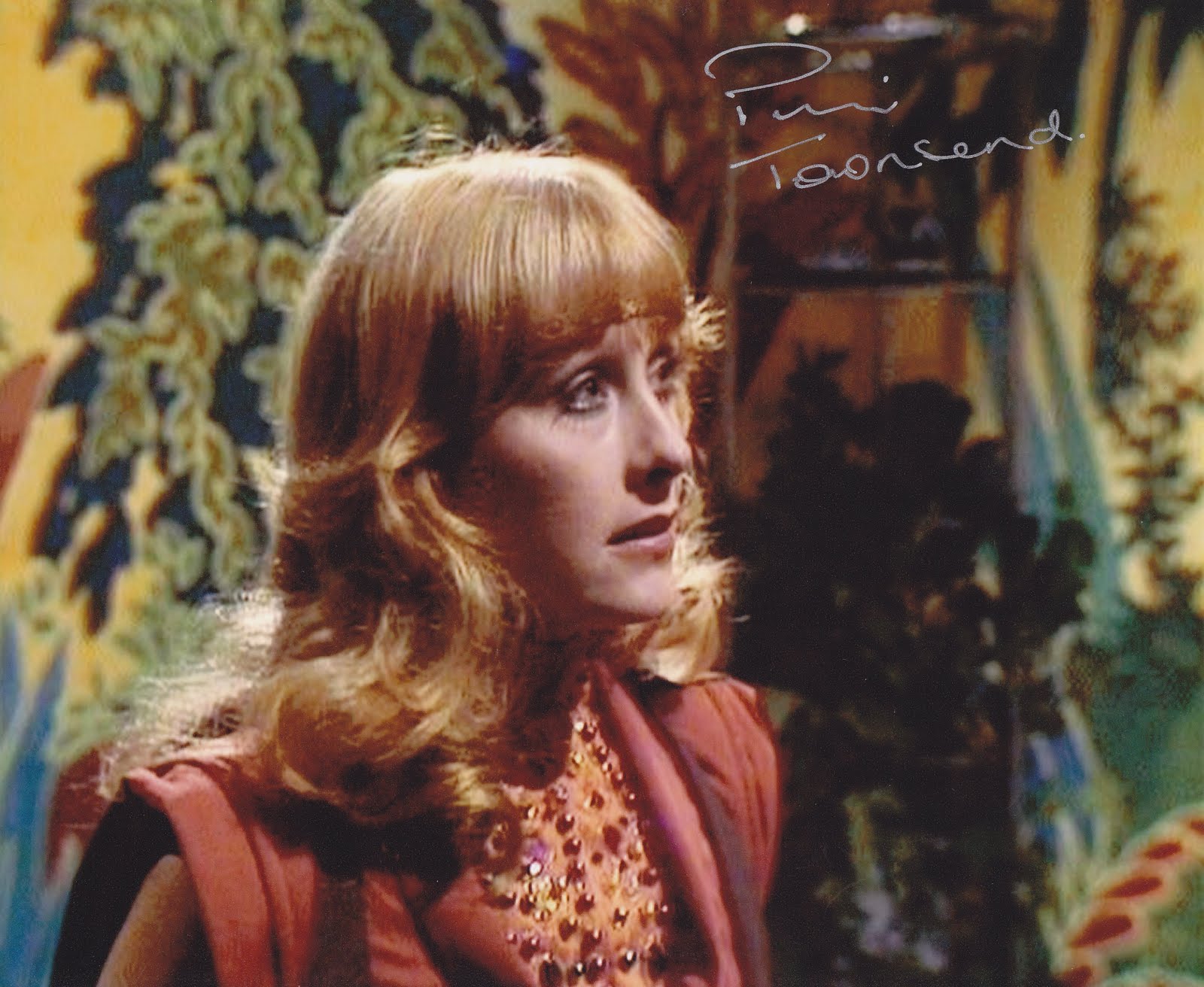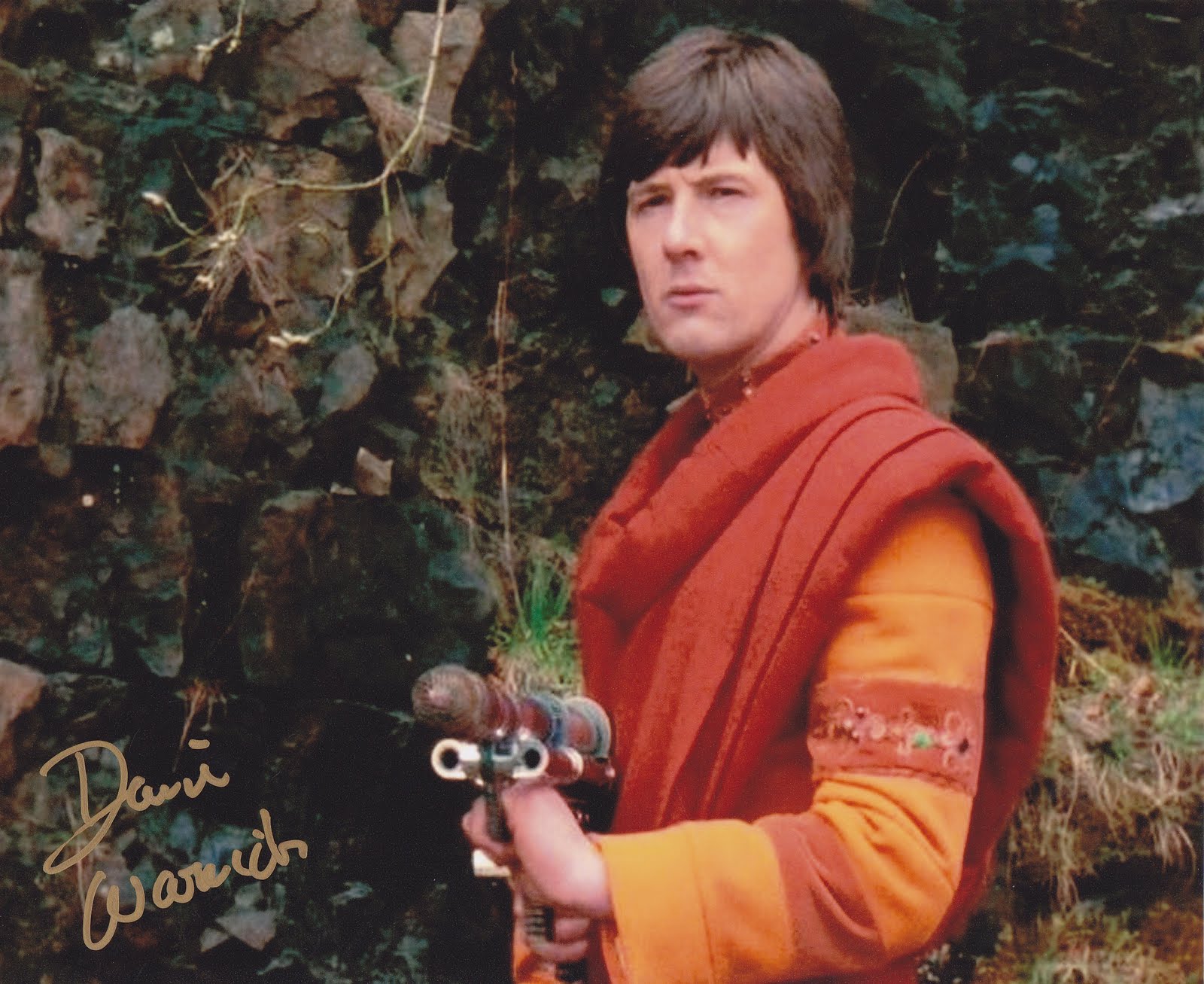The Randomizer: The Pirate Planet
May. 14th, 2014 09:56 pm"Whoever wrote this..." tame layman began after a joke about Newtonian mechanics.
"Douglas Adams."
"What?"
"Douglas Adams wrote this."
"Oh! That explains a lot."
Actually, I'd been slightly underwhelmed by The Pirate Planet so it was interesting to note that someone coming to it, without being aware of the writer, was rating it rather more highly than I was. Of course, once you know it is an Adams script, it has a lot to live up to and, to an extent, it does have Doctor Who's production values working against it.
The obvious comparison point is City of Death in which Paris is providing the sets, the actors are of a generally high calibre and appear to be enjoying themselves, and the central antagonist is articulate and witty. The Pirate Planet, on the other hand, is attempting to replicate an alien planet in a television studio, the acting is rather more variable and confused, and the humour derived from the central antagonist is based primarily on his colourful blustering rather than his urbane wit. Taken together it is easy to see how it seems like something of a lesser cousin. Both stories are pretty high concept - City of Death with its circular time travel and multiple Mona Lisas, while The Pirate Planet has a planet swallowing planet, gravitational mechanics, and the double bluff over who is really in charge - I think City of Death's ideas are rather more coherent but, it is probably fair to say, that coherency of ideas was never one of Douglas Adams' strong points. I suspect I was being overly harsh in my assessment however, not being as good as City of Death is hardly a damning indictment of a Doctor Who story and there is a lot to like - particularly both the Doctor and Mary Tamm's Romana who get consistently good lines to deliver.
The other thing that struck me about the story is how Buck Rogers it was in appearance. Given its date of production (1978) it isn't surprising that it looks a lot like Buck Rogers (at least a lot like Buck Rogers in the 25th Century which seems to have started in 1979) - what is surprising, really, is that more of late 1970s Doctor Who doesn't look a lot like Buck Rogers. I suspect a lot of it is down to Mula and Kimus

.jpg)
who have the whole 1970s perfect hair thing going on not to mention a certain amount of glitter and boots (not visible in the above images). Doctor Who, even when attempting to be particularly "space age", often appeared a bit more grounded, or at least less sparkly though in this case there is a within script justification for the bling.
It is interesting to note that The Pirate Planet is in Graham Williams' 2nd season as producer when he was trying out his big idea for a linked series of stories (an arc as we would call it now). Graham Williams has been an interesting figure in the history of Doctor Who fandom. He was much reviled at one point for toning down the gothic horror of Philip Hinchcliffe's tenure and introducing *gasp* humour in its place. His time as producer has, I think, been being re-assessed almost as long as I've been in fandom. However, I think it is fair to say that The Pirate Planet really doesn't look as good as most of Hinchcliffe's work. If memory serves Williams' was grappling with a reduced budget and, as a result, the quality of the production during his tenure is considerably more variable than it had been in the previous three years. I wonder if I (and the fans at the time) were reacting to that as much as to the introduction of humour.
Tame layman thought this both clever and funny. It is certainly full of ideas which do all fit together, in a somewhat Douglas Adams kind of a way. There's nothing stupid about the script once you suspend a certain amount of disbelief (which isn't always true of Doctor Who) and it has Adams' quality of taking its silliness very seriously. However I think the production doesn't do the story full justice and I'm not sure all the actors really understood what was going on.
"Douglas Adams."
"What?"
"Douglas Adams wrote this."
"Oh! That explains a lot."
Actually, I'd been slightly underwhelmed by The Pirate Planet so it was interesting to note that someone coming to it, without being aware of the writer, was rating it rather more highly than I was. Of course, once you know it is an Adams script, it has a lot to live up to and, to an extent, it does have Doctor Who's production values working against it.
The obvious comparison point is City of Death in which Paris is providing the sets, the actors are of a generally high calibre and appear to be enjoying themselves, and the central antagonist is articulate and witty. The Pirate Planet, on the other hand, is attempting to replicate an alien planet in a television studio, the acting is rather more variable and confused, and the humour derived from the central antagonist is based primarily on his colourful blustering rather than his urbane wit. Taken together it is easy to see how it seems like something of a lesser cousin. Both stories are pretty high concept - City of Death with its circular time travel and multiple Mona Lisas, while The Pirate Planet has a planet swallowing planet, gravitational mechanics, and the double bluff over who is really in charge - I think City of Death's ideas are rather more coherent but, it is probably fair to say, that coherency of ideas was never one of Douglas Adams' strong points. I suspect I was being overly harsh in my assessment however, not being as good as City of Death is hardly a damning indictment of a Doctor Who story and there is a lot to like - particularly both the Doctor and Mary Tamm's Romana who get consistently good lines to deliver.
The other thing that struck me about the story is how Buck Rogers it was in appearance. Given its date of production (1978) it isn't surprising that it looks a lot like Buck Rogers (at least a lot like Buck Rogers in the 25th Century which seems to have started in 1979) - what is surprising, really, is that more of late 1970s Doctor Who doesn't look a lot like Buck Rogers. I suspect a lot of it is down to Mula and Kimus

.jpg)
who have the whole 1970s perfect hair thing going on not to mention a certain amount of glitter and boots (not visible in the above images). Doctor Who, even when attempting to be particularly "space age", often appeared a bit more grounded, or at least less sparkly though in this case there is a within script justification for the bling.
It is interesting to note that The Pirate Planet is in Graham Williams' 2nd season as producer when he was trying out his big idea for a linked series of stories (an arc as we would call it now). Graham Williams has been an interesting figure in the history of Doctor Who fandom. He was much reviled at one point for toning down the gothic horror of Philip Hinchcliffe's tenure and introducing *gasp* humour in its place. His time as producer has, I think, been being re-assessed almost as long as I've been in fandom. However, I think it is fair to say that The Pirate Planet really doesn't look as good as most of Hinchcliffe's work. If memory serves Williams' was grappling with a reduced budget and, as a result, the quality of the production during his tenure is considerably more variable than it had been in the previous three years. I wonder if I (and the fans at the time) were reacting to that as much as to the introduction of humour.
Tame layman thought this both clever and funny. It is certainly full of ideas which do all fit together, in a somewhat Douglas Adams kind of a way. There's nothing stupid about the script once you suspend a certain amount of disbelief (which isn't always true of Doctor Who) and it has Adams' quality of taking its silliness very seriously. However I think the production doesn't do the story full justice and I'm not sure all the actors really understood what was going on.
(no subject)
Date: 2014-05-15 11:09 am (UTC)Reduced in both nominal terms (a punishment from BBC bosses for Hinchcliffe's over-spending in season fourteen - the BBC routinely cut the budgets of programmes that overspent) and, thanks to the double digit inflation of the late seventies, in real terms too. Williams estimated that season seventeen was made on about two-thirds of the budget of season fourteen in real terms.
Season sixteen is still my favourite season, although you are right that the acting can be variable, here and elsewhere. The twist that the Captain's bluster was, to some extent, a front, helps justify it to some extent.
(no subject)
Date: 2014-05-16 09:53 am (UTC)